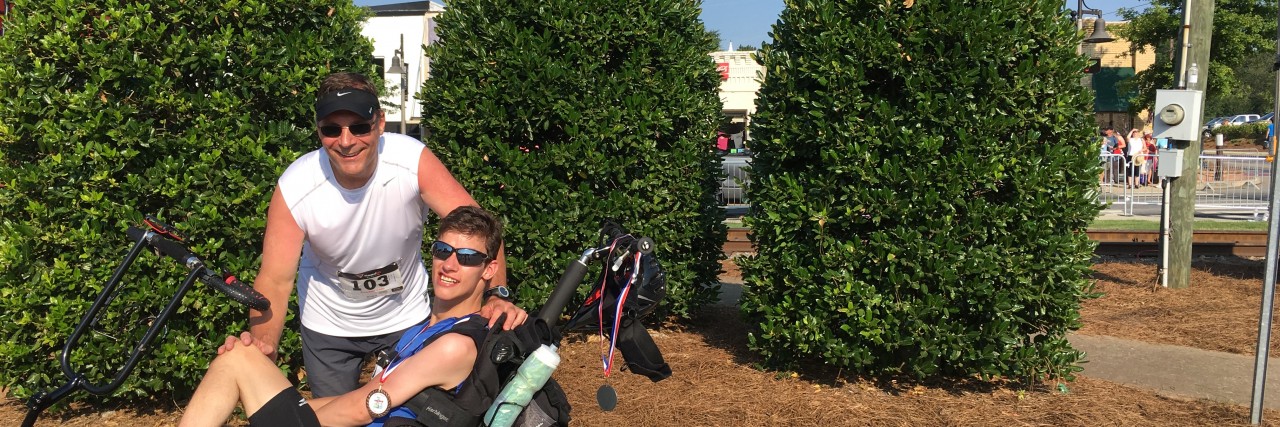I was born a runner. I was not gifted with ultra-speedy legs, short torso, or any other component of a typical marathoner or triathlete. Instead of these luxuries, I rely on sheer grit and tenacity with some ingenuity from my father. I still feel the excitement fizz when we walk to starting lines of road races with my modified recumbent Sun trike — better known as the Rumbler since it’s not a jogger or a racing wheelchair, but functions in the same vein as a push-chair.

People don’t know how it feels to have a disability; there is no word to describe the anxiety a person can feel when your body is stiff from cerebral palsy, when you cannot go places too narrow for your power chair, and you watch your friends leave -– or worse -– carry you through. You need an equalizer to rebuild your self-esteem and rehabilitate your self-worth. For me, it’s the Rumbler. Sporting a two-speed coaster-brake hub, I control the speed and feel the wind in my face. My adrenaline is pumping. I watch the speed steadily rise -– 13, 14, 15, 16 m.p.h. I chuckle as my dad tells me to slow down. He is always lagging behind, whether he’s running on foot or riding his old Murray, also known as the rat bike.
My dad is just one of my many rivals. I find many more in races. I spot one of the fittest male runners (who may or may not be in my age group) and try to keep up with him. Most of the time, he wins, but once in a blue moon, I beat him. And that feels great because by doing so, I am making a statement: it doesn’t matter what your capabilities are -– it’s how much you want it.
Some race officials don’t get this. They’re so caught up in an unfair standard of who “qualifies” as a “ wheelchair athlete,” they have apparently forgotten what racing is truly about. The Peachtree Road Race, unlike most of the runners’ organizations, limits wheelchair athletes to two pairs of partners with qualifying times. My dad and I were ready to compete with the Pease Foundation when the Shepherd Center and the Atlanta Track Club rejected my bike, claiming it was not safe, and that I had an “unfair advantage” because I pedal. That’s like saying Meb can’t run because his shoes give him an unfair advantage because they have a midsole. Although I can find no record of this in the public domain of the Internet, the Peachtree Road Race is supposedly adhering to a rule that says disabled athletes must not use cranks, chains or gears. Athletes are obligated to sign a waiver expressing this consent.
As an athlete, I was insulted. My dad and I qualified with a sub seven-minute mile for a 10K race. As a disabled person, I was mortified. Physically challenged people don’t have advantages. The only thing we can do is use what we have to the best of our ability. The Shepherd Center’s mission “is to help people with a temporary or permanent disability caused by injury or disease, rebuild their lives with hope, independence and dignity, advocating for their full inclusion in all aspects of community life while promoting safety and injury prevention.” As race directors, they are accountable for promoting fitness for individuals from all walks of life, including individuals from the disabled community.
I’m advocating to change the policies surrounding adapted racing bikes. I am working with a foundation for pushchair athletes to make a category for adapted devices with cranks. I use a recumbent bike because it’s an equalizer for me, since I can’t run. It is morally and ethically unjust, and violates the Shepherd Center’s own mission statement to deny me and others like me the right to use my bike. Changing the rule disallowing chairs with cranks would open more opportunities to wheelchair athletes who need hand-crank chairs to compete. All physically challenged individuals should be treated like every other participant, and given the opportunity to participate in the largest 10K road race in the world.

